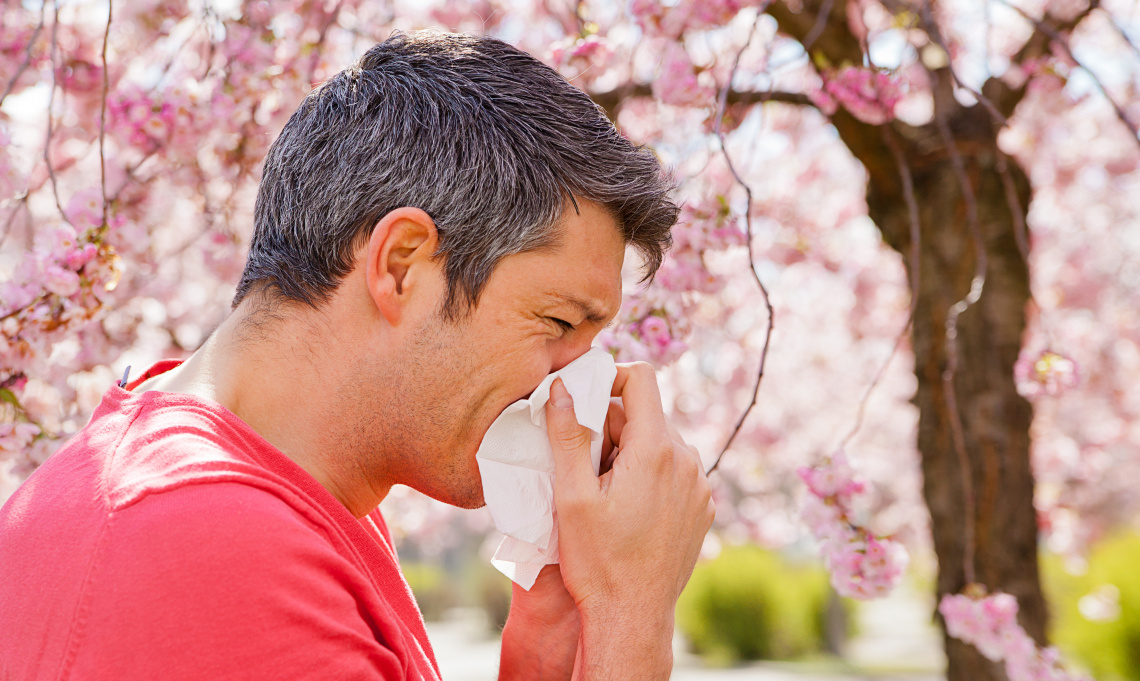Sufferers of allergies and hay fever are no strangers to searching for any solution that might relieve their symptoms; a new anti-histamine, strange nasal drainage recommendations, avoiding certain trees, endless sinus relief pills and, of course, having an endless supply of tissues in case everything else fails you. With so many people suffering all over the world, you would think that pharmaceutical companies would have found a miracle drug to relieve hay fever and allergies once and for all. Unfortunately, no such luck. However, what can have real impact in reducing your symptoms is your diet – and once you notice improvement, it’s really a no-brainer.
Is your dinner sabotaging you?
Allergy symptoms, like many other health issues, can often be solved by eating the right foods and avoiding the wrong ones. Many foods can help you breathe and fight sinus and respiratory infections by providing your body with the vitamins and minerals that help combat general illness and subsequent inflammation, as well as weak immune systems. Certain nutrients in food can open up clogged nasal passages and boost your immunity to allergies and infections linked to hay fever.
Studies into certain populations have shown that rarity in allergies and respiratory issues is due to a specific diet. Societies on the Mediterranean coast naturally consume what’s known as a “Mediterranean diet”; fresh fruits and vegetables, fish, olive oil and nuts are a staple from childhood. These foods are all naturally high in antioxidants that have multiple immune-boosting compounds and aid disease prevention and cell damage. Essentially, people who grow up in the Mediterranean are far less prone to allergies and hay fever than the rest of us simply because they eat the foods that fight against them.
Get ready for battle with foods that fight allergies
There are loads of foods with anti-inflammatory properties that can help combat the inconvenience of both seasonal and general allergies. Here are some of the most effective additions to your diet when you’re looking to manage your allergies...
Nuts about nuts – There are so many delicious varieties of nuts that incorporating them in your diet shouldn’t be too hard – unless, of course, you are allergic to them! (Then please, avoid at all costs!) They are a great source of magnesium and vitamin E. Magnesium helps improve lung function and relieves symptoms of asthma. The vitamin E component boasts immune boosting and antioxidant properties. It has proven to decrease the risk of respiratory infection, and fights against the inflammation triggers.
Five a day with vitamin C – We’re used to reaching for vitamin C to fight common colds, flu and other immune-related symptoms. Research has found that vitamin C-loaded fruits like apples, oranges and tomatoes – yes, they’re a fruit – can also fight asthma and general allergy symptoms. It’s an important antioxidant for sufferers, because allergies can often lead to a cold, or vice versa.
Grape day out – Red grape skin is full of antioxidants and resveratrol that reduces inflammation. How is this relevant? Allergic reactions, especially those to seasonal change, lead to an inflammatory response in your body. So, controlling and relieving your body’s inflammation could lessen your symptoms. Be careful with grapes, though. They are known to increase mucus production, so if you’re suffering from congestion, it’s probably a good idea to avoid them.

Gone Fishing – Eating fatty fish such as salmon, mackerel, sardines and tuna can also help decrease inflammation, and in turn, decrease the chance of developing allergies. Those omega-3 fatty acids are miracle workers. If you’re not a fan of fish, no problem! Consider adding a fish oil, or omega-3 supplement to your diet.
Zinc again – Foods high in zinc, such as lean beef, crab, legumes, some whole grains like whole wheat, oats or quinoa, and soy products have an anti-bacterial and antiviral effect on the body. Zinc boosts your immunity and helps fight infections linked to allergies and hay fever.
__
Allergy – small word, big problem. In the UK alone, 21 million people suffer at least one allergy, while 10 million suffer two or more. But while you can’t always control your external environment (a common aggravator of allergies), you can control what you put in your body. Take back the control of your runaway nose and make simple changes to your diet to give you a little bit of much needed relief.







Comments